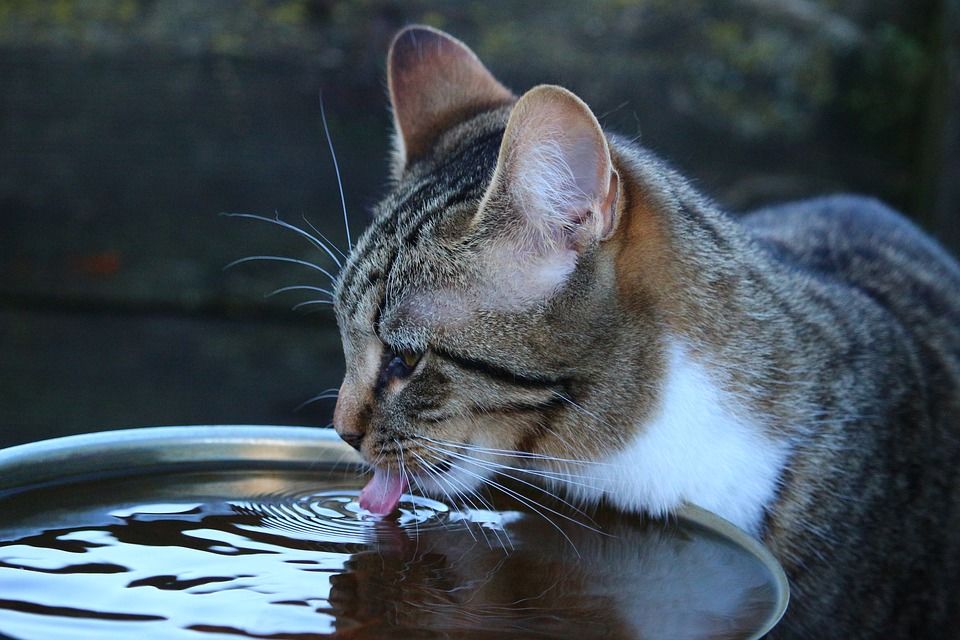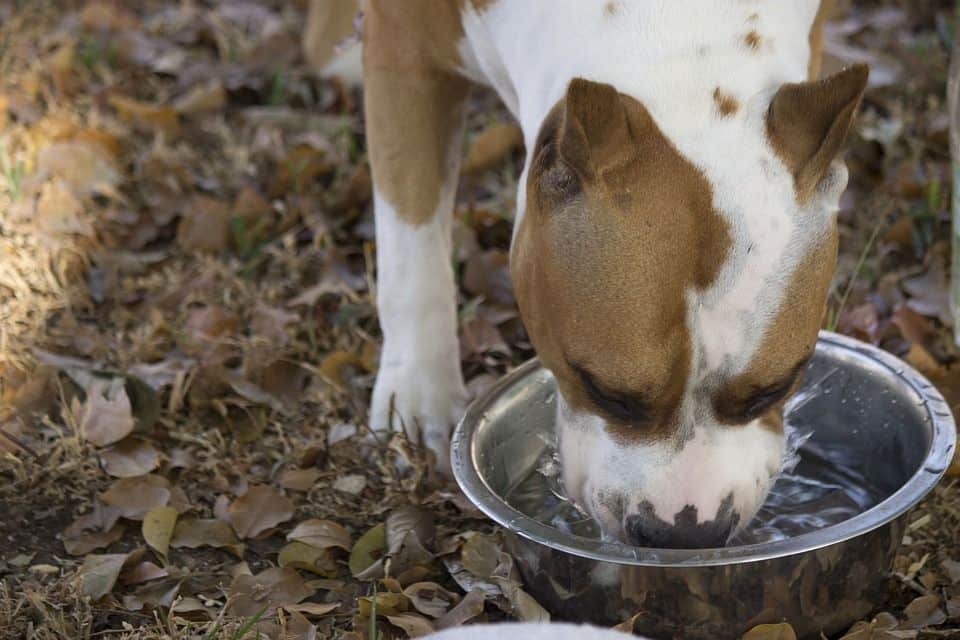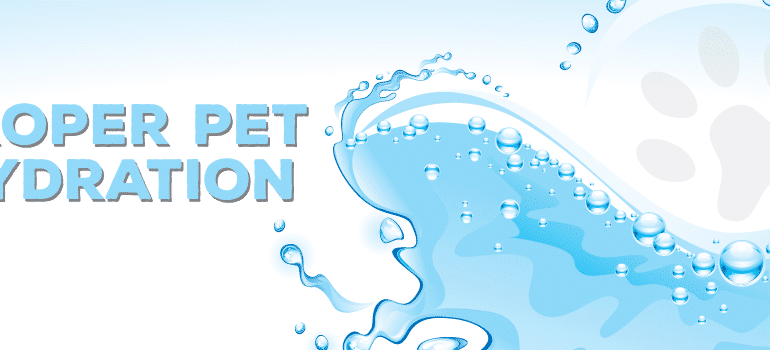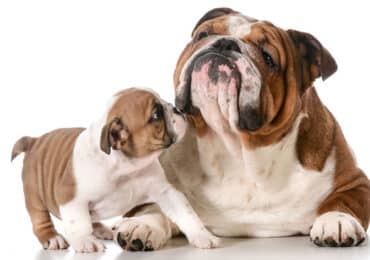Keeping your pet properly hydrated is vital to their health, especially during summer months, when we can experience potentially dangerous levels of heat. Water is vital to the body’s internal processes, including circulation, digestion, and waste. Your pet’s body is made up of 80% water, compared to the average human at 55-60%. Dehydration, or a harmful reduction of water in the body, can cause serious health problems in your pet and even prove fatal in extreme cases.
To celebrate Pet Hydration Awareness Month in July, here is some information and safety tips to keep your pet cool and properly hydrated.

Just like humans, pets can easily become dehydrated when they do not consume enough water in a day. Another cause of dehydration is when your pet experiences increased fluid loss due to overheating in hot weather, or expelling fluids during spells of vomiting and diarrhea.
When the weather is hotter than ever, especially in the mid to late summer months, your pet is more susceptible to dehydration. Always keep a close eye on your pet and know the warning signs of thirst, including panting, thick saliva or constipation. Once symptoms of dehydration have set in, your pet will need immediate assistance from your vet to get fluids back to a healthy level.

Symptoms of dehydration:
- Sunken eyes
- Lethargy
- Loss of appetite
- Dry mouth
- Depression

Think your pet may be dehydrated? Try performing the skin test – this is when you gently grab some loose skin, either between the shoulder blades or at the back of the neck; when you release the skin, does it bounce back right away or return slowly? If it’s slow to return, this can be a sign that your pet is experiencing dehydration and should be taken to your veterinarian immediately. After an assessment, your vet may need to give your pet fluids intravenously to bring their level back to normal.

How can you prevent dehydration? The most important practice is to have clean, fresh water readily available to your pet at all times. Additionally, it’s good to be aware of how much water your pet is consuming; monitor their intake using the rule of thumb that one ounce of water per ten pounds of body weight should be drunk daily.

If you and your pet will be out in the sun, exercising, or traveling, be prepared with plenty of water and a portable water dish. Weighted dishes work great to ensure your pet doesn’t accidentally (or purposely, if you have a playful feline) knock over the dish, or there are convenient collapsible options for quick stops on a walk. It’s also good practice to thoroughly wash water dishes daily to prevent any buildup of bacteria.
Still have questions about the best hydration regimen for your pet? We’re more than happy to address any concerns you may have; schedule an appointment online for your pet today, or call our clinic 701.775.3500.



